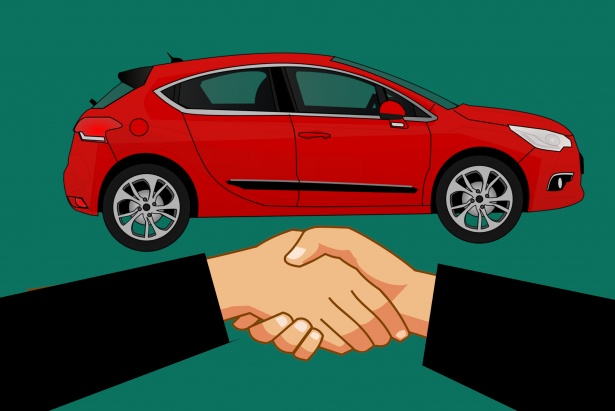The Car Book Blog: Financing
The Center for Auto Safety is the nation’s premier independent, member driven, non-profit consumer advocacy organization dedicated to improving vehicle safety, quality, and fuel economy on behalf of all drivers, passengers, and pedestrians.
 With the release of the 39th edition of The Car Book—now available online—we’re sharing some of our best tips for car buying and maintaining your vehicle after you buy. The Car Book 2019 provides today’s car buyer with in-depth ratings of the 2019 vehicles, The Car Book’s unique crash test ratings, comparative complaint ratings, and all of the information needed to make a smart, safe and informed vehicle purchase. For online users only, the site also includes over 1,000 used car ratings going back five years.
With the release of the 39th edition of The Car Book—now available online—we’re sharing some of our best tips for car buying and maintaining your vehicle after you buy. The Car Book 2019 provides today’s car buyer with in-depth ratings of the 2019 vehicles, The Car Book’s unique crash test ratings, comparative complaint ratings, and all of the information needed to make a smart, safe and informed vehicle purchase. For online users only, the site also includes over 1,000 used car ratings going back five years.
You’ve done your test drive, researched prices, studied crash tests, determined the options you want, and haggled to get the best price. Now you have to decide how to pay for the car. If you have the cash, pay for the car right way. You avoid finance charges, you won’t have a large debt haunting you, and the full value of the car is yours. You can then make the monthly payments to yourself to save up for your next car. However, most of us can’t afford to pay in cash for a car, which leaves two options: financing or leasing. While leasing may seem more affordable, financing will actually cost you less and give you flexibility. When you finance a car, you own it after you finish your payments. At the end of a lease, you have nothing.
Financing Tips
- Shop around for interest rates. Most banks and credit unions will knock off at least a quarter of a percent for their customers. Have these quotes handy when you talk financing with a dealer.

- The higher your down payment, the less you’ll have to finance. This will not only reduce your overall interest charges, but often qualifies you for a lower interest rate.
- Avoid long car loans. The monthly payments are lower, but you’ll pay far more in overall interest charges. For example, a two-year, $25,000 loan at 4% will cost you $1,055 in interest; the same amount at five years will cost you $2,625–well over twice as much!
- Beware of manufacturer promotional rates. You might see a 0 to 1% rate advertised, but these low rates are usually only valid on two or three year loans and only for the most credit-worthy customers.
- Read everything you are asked to sign and ask questions about anything you don’t fully understand.
- Make sure that an extended warranty has not been added to the purchase price. Dealers will sometimes do this without telling you. Extended warranties are generally a bad value.
- Credit Unions vs. Banks: Credit unions generally charge fewer and lower fees and offer better rates than banks. In addition, credit unions offer counseling services where consumers can find pricing information on cars or compare monthly payments for financing. You can join a credit union either through your employer, an organization or club, or if you have a relative who is part of a credit union.
Finally, don’t fall for the tricks of car dealers!
- Beware of high-pressure phrases like, “I’ve talked to the manager and this is really the best we can do. As it is, we’re losing money on
 this deal.” Rarely is this true. Dealers are in the business to make money and most do so very well. Don’t tolerate a “take-it-or-leave-it” attitude. Simply repeat that you will only buy when you see the deal you want and that you don’t appreciate the dealer pressuring you. Threaten to leave if the dealer continues to pressure you to buy today.
this deal.” Rarely is this true. Dealers are in the business to make money and most do so very well. Don’t tolerate a “take-it-or-leave-it” attitude. Simply repeat that you will only buy when you see the deal you want and that you don’t appreciate the dealer pressuring you. Threaten to leave if the dealer continues to pressure you to buy today. - Don’t let the dealer answer your questions with a question. If you ask, “Can I get this same car with leather seats?,” and the salesperson answers, “If I get you leather seats in this car, will you buy today?,” then this response forces you to decide before you are ready. Ask the dealer to please just answer your question.
- Get a price; don’t settle for it. Comparison shop for prices among different dealerships–and explain to dealers that you will buy where you get the best deal.
If you haven’t already, be sure to join the Center for Auto Safety to get a full year’s access to TheCarBook.com. Come back to The Car Book Blog soon for more insightful car buying information.
Read More from The Car Book Blog.
